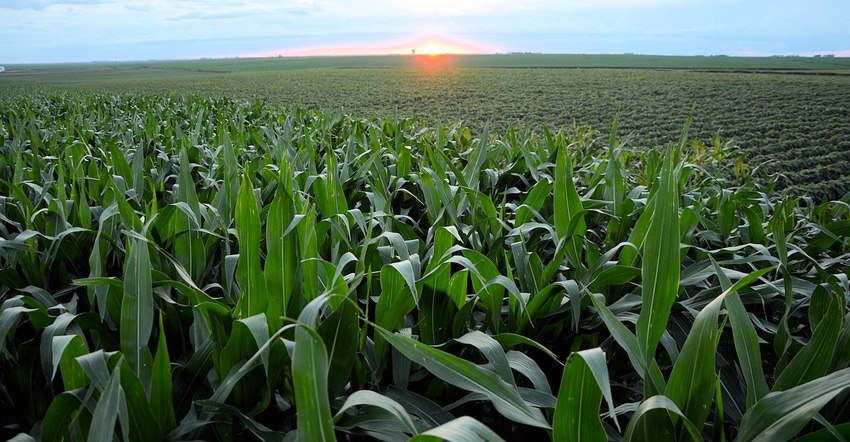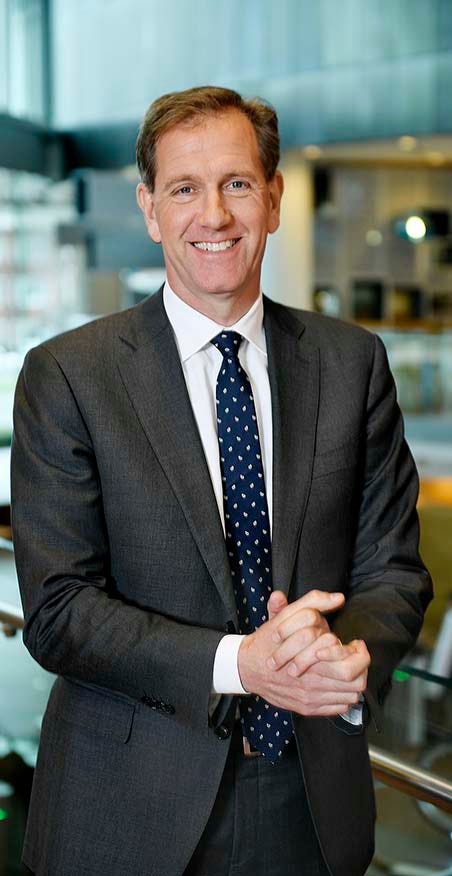October 16, 2017

The numbers loom large for global food producers – 9.7 billion people on the planet by 2050 – which will require a big increase in food production while using less resources. Rabobank, the world's largest agriculture bank, announced a $1 billion commitment this week to support sustainable agriculture.
Weibe Draijer, Rabobank CEO, talked with Farm Progress about the commitment and how it will take shape in the coming months. The announcement is timed for UN World Food Day; noting the goal of helping increase food production by 60% with a 50% smaller footprint by 2050.

Wiehe Draijer
"As a cooperative bank we are actively engaged in building a more sustainable food supply," Draijer said. He explained that this new initiative is aimed to kickstart investment in food, nutrition, and waste reduction. This $1 billion facility commitment is focused on what Rabobank calls the Kickstart Food program.
The program is more than a cash payment. The effort involves both financial incentives and technical assistance. Draijer explained that the bank will draw on best practices from the firm's global client base. And the bank will partner with a range of groups including The World Wildlife Fund. The bank is already at work in Brazil with WWF on working with farmers there to re-evaluate crop rotations to improve the environment.
While Rabobank starts this initiative with $1 billion, Draijer noted that the aim is not to go it alone in the long term. He's reaching out to other players in the market to get them involved in Kickstart Food to expand the initiative and boost potential results. For example, a kickstart with Justdiggit is being prepared for Africa. And Draijer is making calls for support from others too.
"I'll be in Mexico at the World Business Council of Sustainable Development with leading players in the market [this week] and I will make a plea for them to join in," he noted. "At this table, [the participants] are aligned around the need to make the food supply more sustainable."
Berry Marttin, who works on the firm's banking for food initiative, explained that "we have been working in Brazil for a few years on this with farmers. And we have had some success." He said the aim there is working with farmers to rethink their crop rotations to bring in diversity and natural approaches to crop nutrition that in the end boost productivity.
Marttin noted that as population grows the amount of arable farmland per person in the world is declining. That's a concern as the need for food rises. "We have to work with a restriction of resources while supporting an increase in productivity. The technology is not there, but if we don't push it or we'll never get there," he said.
Added Draijer: "Yes, we need to be more sustainable in land use, and feed more people. We have to solve for both equations. And our intent is to work with all farmers."
In fact, Rabobank works with both large farm operations and small-holder farms in developing countries. This initial program starts in Brazil and Indonesia where sustainability practices aim to preserve forests and enhance farmland productivity.
The rising population is a concern for many. The challenge is to keep pace with population, and demographic improvement, by boosting food production. Drajer explains how he envisions this program will unfold and why the bank is involved.
"As a cooperative, we have redefined our mission – growing a better world together – and this is in line with that mission. This is a choice we're proud of and we intend to expand, and make that mission work to essentially achieve the United Nation sustainability goals," he said. "If a farmer has a proposal or initiative to run his farm in a more integrated fashion, he can get a loan [under this program]."
Draijer further explained that if the farmer fulfills the more environmental approach there would be discounts to loan rates, and other derisking support for the operation to help promote the sustainable approach. "This is a real incentive to change," he said.
Marttin noted that in the test in Brazil, a farmer entering such a program has to go through a big checklist, developed in cooperation with WWF. "Depending on the grading from that list, there can be loan discounts," he said. "There are large farmers involved in those meetings. There's a lot of enthusiasm for this program."
About the Author(s)
You May Also Like






